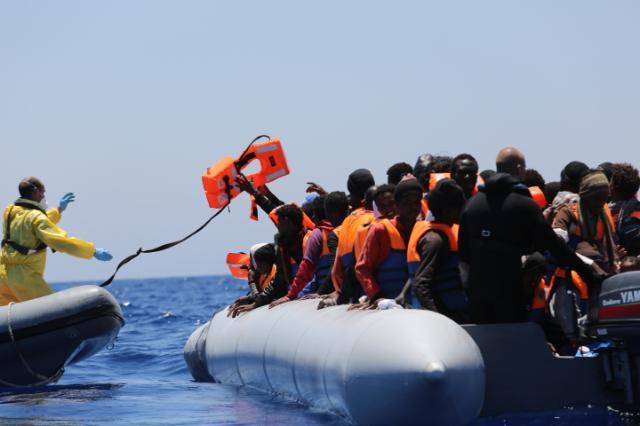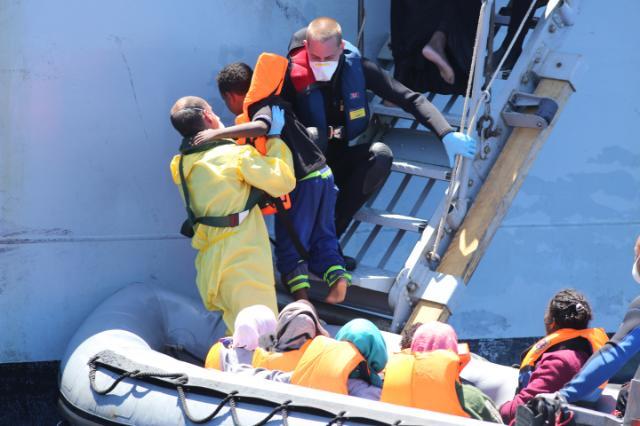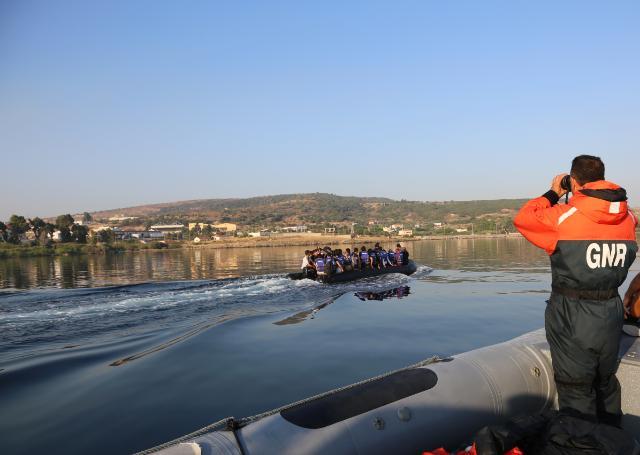Search and rescue (SAR) as an obligation under international law
Providing assistance to any persons found in distress at sea is a legal obligation of EU countries established in international customary and conventional law (International Convention for the Safety of Life at Sea - SOLAS Convention, 1974; United Nations Convention of the Law of the Sea - UNCLOS, 1979; International Convention on Maritime Search and Rescue - SAR Convention, 1979), as well as EU law.
According to the SAR Convention, contracting countries are obliged to develop maritime SAR services and to take any urgent steps to ensure that the necessary assistance is provided to any person who is, or appears to be, in distress at sea. This also includes the coordination of SAR operations until those assisted are delivered to a place of safety.

Migratory flows and search and rescue in the Mediterranean Sea
Since at least the mid-1990s, thousands of people have crossed the Mediterranean each year by boat to seek asylum or to migrate to Europe, if they do not have the documentation required by the countries of destination. As documented by the International Organisation for Migration’s Missing Migrants Project, the Mediterranean Sea has become a site of escalating numbers of migrant fatalities in recent years (with more than 2,000 recorded as missing in 2021 alone).
This requires a comprehensive and multifaceted response from the European Union and its EU countries, with a view to:
- prevent loss of life at sea
- improve migration management
- develop safe and dignified alternatives to dangerous crossings
- disrupt organized crime groups of migrant smugglers and traffickers in human beings
As a consequence of the migratory crisis, SAR capacity, coordination, and effectiveness in the Mediterranean Sea have been enhanced considerably since 2015, with significant contributions from the EU and coastal countries (including operations led by national authorities and by the European Border and Coast Guard Agency - Frontex), and the increased involvement of private and commercial vessels (including private vessels operated by Non-Governmental Organisations with the main purpose of proactively carrying out SAR activities at sea).

A more coordinated approach to search and rescue
The European Commission has no role in the coordination of SAR operations or in the determination of a place of safety for disembarkation of assisted persons. This is decided by the competent national Maritime Rescue Coordination Center (MRCC) in charge of the rescue operation.
Nevertheless, SAR activities are also a key element of European integrated border management. On 14 March 2023, the Commission adopted the Communication establishing the multiannual strategic policy for European integrated border management, providing policy priorities and strategic guidelines, among other components, on SAR. Moreover, the continuous disembarkations of rescued migrants in some coastal EU countries, that result from national and private operations, has a significant impact on their asylum, migration and border management systems.
In the context of the Pact on Migration and Asylum, based on the principle of fair sharing of responsibility and solidarity, the European Commission proposed a more coordinated and multi-pillar approach to SAR issues. The Commission has done so to address the specificity of the search and rescue practice which have arisen in the Mediterranean over the past years, and in line with EU competences and the relevant legal framework.
The European Commission adopted the Recommendation (EU)2020/1365 addressed to EU countries and aimed at supporting reinforced information sharing, coordination and cooperation between EU countries and with other relevant stakeholders in the field of search and rescue, with a particular focus on operations carried out by private vessels owned or operated for this specific purpose.
In accordance with this Recommendation, in 2021 the European Commission established the European Contact Group on Search and Rescue, a platform allowing for a structured dialogue among EU countries and Schengen Associated States, and with other relevant stakeholders, on the implementation of the legal framework and the evolving practice of SAR.
Moreover, the European Commission is coordinating discussions regarding the relocation and distribution of rescued people among EU countries and is supporting and encouraging them to work together in the spirit of solidarity.

